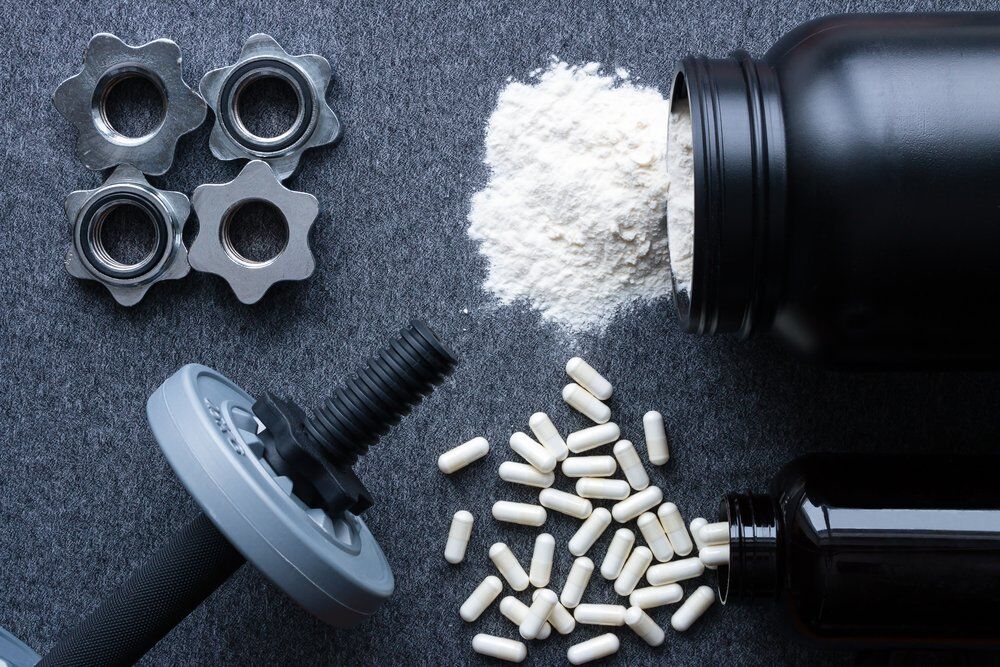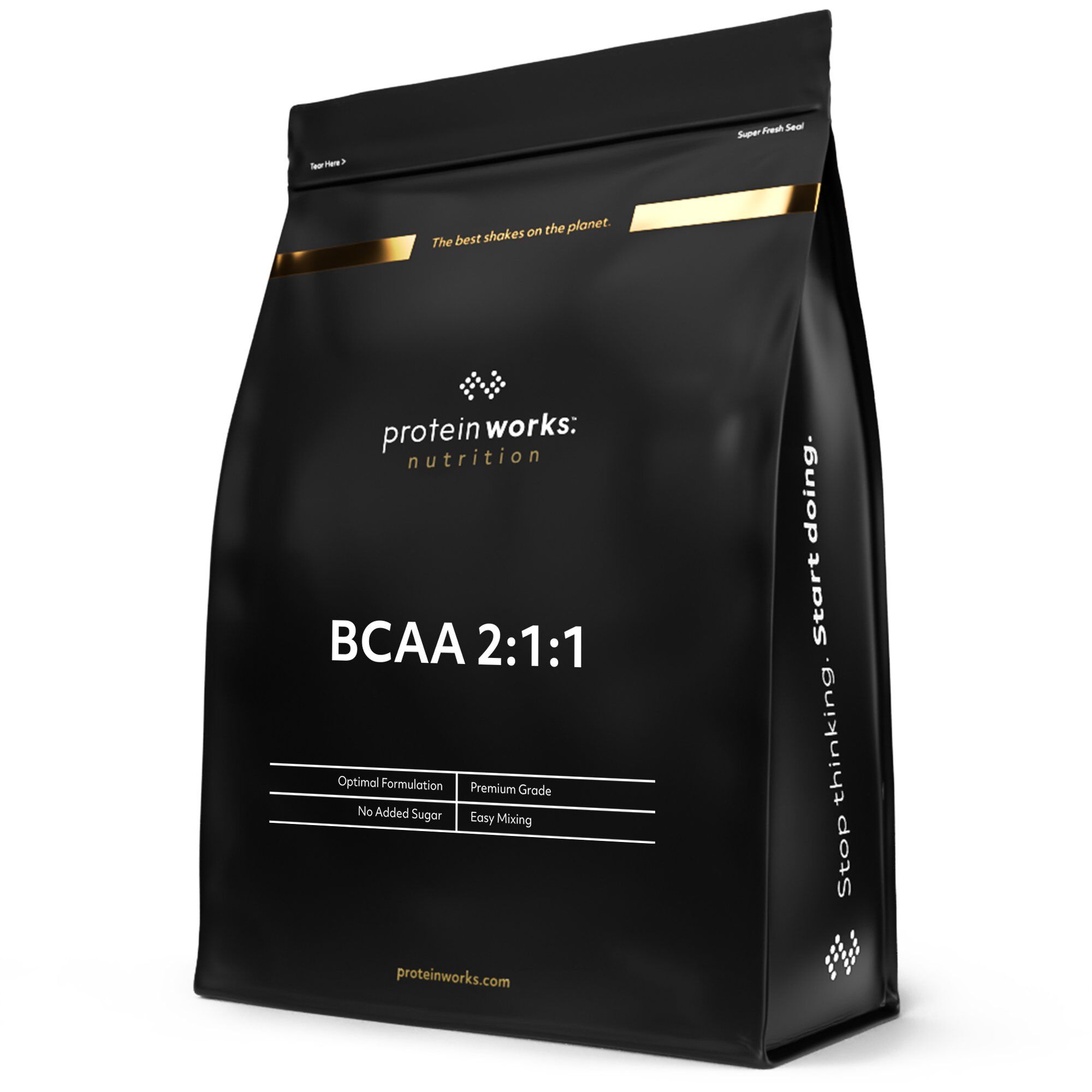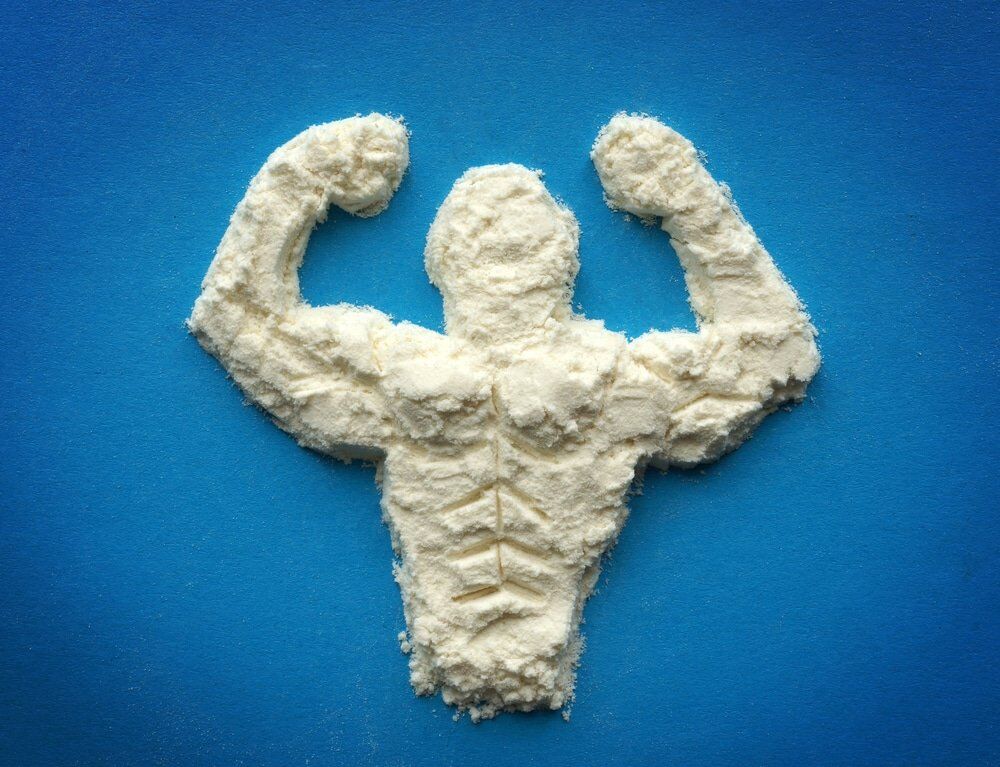Branched-chain amino acids, or BCAA’s for short, are extremely popular sports nutrition supplements with many benefits, especially if it’s about muscle building and regeneration. Many are sure but unsure what they are actually good for and when we should take them. We’ll help you here.

Wann sollte ich BCAAs zu mir nehmen?
There are 20 different amino acids, although not all are the same, meaning some are produced naturally by our bodies and others must be obtained through the food we eat. Of the nine amino acids that we produce naturally, three are the BCAA’s that we find in our favorite supplements. These include leucine, isoleucine and valine. Like most sports nutrition products, BCAA’s have been subjected to many scientific studies to see if all claims are true. We have summarized a few for you: Claim: BCAAs increase muscle growth Evidence : A study conducted on two groups examined the synthesis of muscle proteins after participating in resistance training. Those who consumed 5.6g of BCAAs post-workout had a 22% increase in muscle protein synthesis compared to those who took the placebo drink. (Jacksman et al. 2017) Claim : BCAAs reduce muscle soreness Evidence : One study looked at individuals‘ pre-exercise muscle pain before a squat and delayed onset muscle pain. The results revealed that those who consumed a BCAA supplement drink experienced less muscle soreness compared to the placebo group. ( Shimomura 1 et al. 2010) Claim : BCAA’s reduce fatigue during exercise Proof : BCAA’s are used during training and levels drop. When these levels drop, another amino acid called tryptophan increases in your brain. This tryptophan is converted into serotonin, a chemical known to contribute to the development of fatigue. By consuming BCAAs, tryptophan in the body is minimized ( Shimomura 2 et al. 2004). The main reason for consuming a BCAA supplement is to trigger muscle synthesis to repair and rebuild muscles after a workout. If you incorporate sufficient amounts of protein into your diet (e.g. 1g per 1 pound of muscle mass), whether that comes from protein shakes or foods, then BCAA’s may not be necessary. However, we all have busy lives, and getting enough protein in your diet can be difficult. That’s why BCAA’s can be an important supplement to ensure this supply. Studies have looked at how much BCAA should be consumed to ensure we are stimulating muscle protein synthesis, for example after 30 days of BCAA supplementation in 14g/day individuals. This showed a significant increase in muscle mass and strength in untrained individuals (Candeloro et al. 1995), while a study with only 5 g of BCAA supplementation showed no improvements in body composition muscle mass (Spillane et al. 2012). Additionally, a study by Schena et al (1992) found that a higher dosage of 10g of BCAA supplementation also increased fat-free mass by 1.5% during a 21-day hike. This suggests that a higher dosage of BCAA is the best way to stimulate muscle protein synthesis to gain more muscle mass and aid recovery. BCAA’s can be offered in various forms from powders to pills and can be taken up to 3 times a day depending on your own dosage. They can be mixed with other supplements or taken alone, although it is important to follow the manufacturer’s instructions, often found on the back of BCAA bags or cans, as some BCAA supplements vary in their ratio and potency can. BCAA levels typically peak around 30 minutes after consuming the supplement, although studies have had difficulty determining the best time to consume (Howatson et al. 2012), although it often depends on the type of blend being used is consumed and the additional ingredients it contains. We recommend consuming shortly before, during or immediately after training as your body is in an absorbing state. What’s notable, however, is that according to new technologies and advances in understanding this window, some say it can last up to five hours after exercise (Schönfield et al. 2017 & Aaragon & Schönfield 2013), so don’t worry too much, if you forget to take your BCAA’s. There are many BCAA blends that contain pre-workout ingredients. Take for example THE PROTEIN WORKS, Amino-NRG, contains BCAA’s, green tea extract, beta-alanine, citrulline malate and caffeine, which helps improve mental focus and reduce fatigue. Taking these types of BCAA blends helps flood your muscles with amino acids that help support your workout but also give you the energy to get through a full workout session. It’s important to note here that taking this type of BCAA blend late at night is not recommended as the caffeine content can keep you from sleeping. However, taking regular BCAA blends is also highly recommended for pre-workout as it allows your body to maintain high BCAA levels during exercise. There are very few studies that look at the difference between consuming BCAA’s pre-workout and post-workout, as the majority simply looked at the benefits after an intense workout. Taking BCAA post-workout is really an important period as the supplement itself aims to regenerate muscles once you are exhausted after a hard workout rather than boosting energy. It’s one of the reasons we also consume protein post-workout, simply to provide your muscles with amino acids so they can recover. BCAA does this too, but in a more concentrated form. This means that the amino acids can be broken down and absorbed much faster than what is contained in the protein, helping to speed up regeneration. As we have already explained in more detail, BCAA contains the amino acids leucine, isoleucine and valine. Leucine is better known for its effects on protein synthesis and muscle protein synthesis. Muscle protein synthesis is the naturally occurring process by which protein is produced to repair muscle tissue damage, this is how muscle strength and size are built, and by stimulating muscle protein synthesis you can accelerate growth, improve recovery and improve overall athletic performance. By taking BCAA supplements post-workout, you’re giving your body the best chance of recovery and reducing the chances of the dreaded delayed muscle soreness. A study that looked at muscle protein synthesis after consuming a BCAA drink found that: Those who consumed 5.6g of BCAAs post-workout had a 22% increase in muscle protein synthesis than those who took a placebo -drink consumed. (Jacksman et al. 2017) One area that many athletes and gym goers fail to optimize is their diet before bed. During this time, the body is typically starved of an energy source and placed in a catabolic state. This is not such a bad thing as it is an effective way to lose weight as the body uses its fat stores for energy. But it also breaks down muscle. After working hard in the gym all week, that’s probably the last thing you want. During this catabolic state during sleep, BCAA levels in the body can drop within the first few hours. By consuming BCAA’s before bed, it allows your body to receive a drip supply of amino acids that trigger muscle protein synthesis to reduce the recovery rate and also build muscle mass. Triggering protein synthesis can also help your body use its fat stores as its primary source of energy, rather than muscle as well. The rule of not consuming anything after 8pm is now a thing of the past, but that doesn’t mean you should consume a big meal or a heavy protein shake. Because eating a late meal instead of BCAA’s means the chance of missing your macros and feeling full and bloated. For this reason, many people like to take BCAAs before going to bed. Jackman SR, Witard OC, Philp A, Wallis GA, Baar K, Tipton KD. (2017). Branched-Chain Amino Acid Ingestion Stimulates Muscle Myofibrillar Protein Synthesis following Resistance Exercise in Humans.. Frontiers in Physiology . 8(7). Shimomura 1 Y, Inaguma A, Watanabe S, Yamamoto Y, Muramatsu Y, Bajotto G, Sato J, Shimomura N, Kobayashi H, Mawatari K. (2010). Branched-chain amino acid supplementation before squat exercise and delayed-onset muscle soreness.. International journal of sports nutrition and exercise metabolism . 3(10), p236-234. Shimomura 2 Y, Murakami T, Nakai N, Nagasaki M, Harris RA.. (2004). Exercise promotes BCAA catabolism: effects of BCAA supplementation on skeletal muscle during exercise. The Journal of Nutrition . 6 (3), p1583-1587. Schena F, Guerrini F, Tregnaghi P, Kayser B. Branched-chain amino acid supplementation during trekking at high altitude. The effects on loss of body mass, body composition, and muscle power. Eur J Appl Physiol Occup Physiol. 1992;65(5):394–8 Spillane M, Emerson C, Willoughby DS. The effects of 8 weeks of heavy resistance training and branched-chain amino acid supplementation on body composition and muscle performance. NutrHealth. 2012;21(4):263–73. Candeloro N, Bertini I, Melchiorri G, De Lorenzo A. Effects of prolonged administration of branched-chain amino acids on body composition and physical fitness. Minerva Endocrinol. 1995;20(4):217–23. Miyazaki T, Kojima R, Komine S, Ishikura K, Kawanaka K, Honda A, Matsuzaki Y, Ohmori H. (2018). Effect of BCAA supplement timing on exercise-induced muscle soreness and damage: a pilot placebo-controlled double-blind study.. Journal Of Sports Medicine and Physical Fitness . 11 (58), p1582-1591. Howatson G, Hoad M, Goodall S, Tallent J, Bell PG, French DN. (2012). Exercise-induced muscle damage is reduced in resistance-trained males by branched chain amino acids: a randomized, double-blind, placebo-controlled study.. Journal of the international society of sports nutrition . 12(9). Aragon AA, Schoenfeld BJ.. (2017). Nutrient timing revisited: is there a post-exercise anabolic window?. Journal of the international society of sports nutrition . 5(1). Schoenfeld BJ, Aragon A, Wilborn C, Urbina SL, Hayward SE, Krieger J. (2017). Pre- versus post-exercise protein intake has similar effects on muscular adaptations.. Journal of the international society of sports nutrition . 1 (1). What are BCAA’s?
Are BCAA’s worth it?
How much BCAA should I consume?
When should I take BCAA’s?
Consuming BCAA before training
Consuming BCAA after workout
BCAA before bed?
credentials









Noch keine Kommentare!